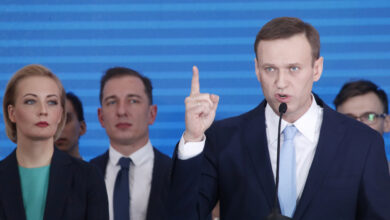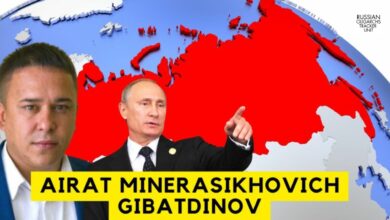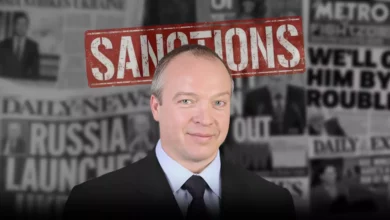Vladimir Potanin: Prominent Russian Billionaire Businessman Biography
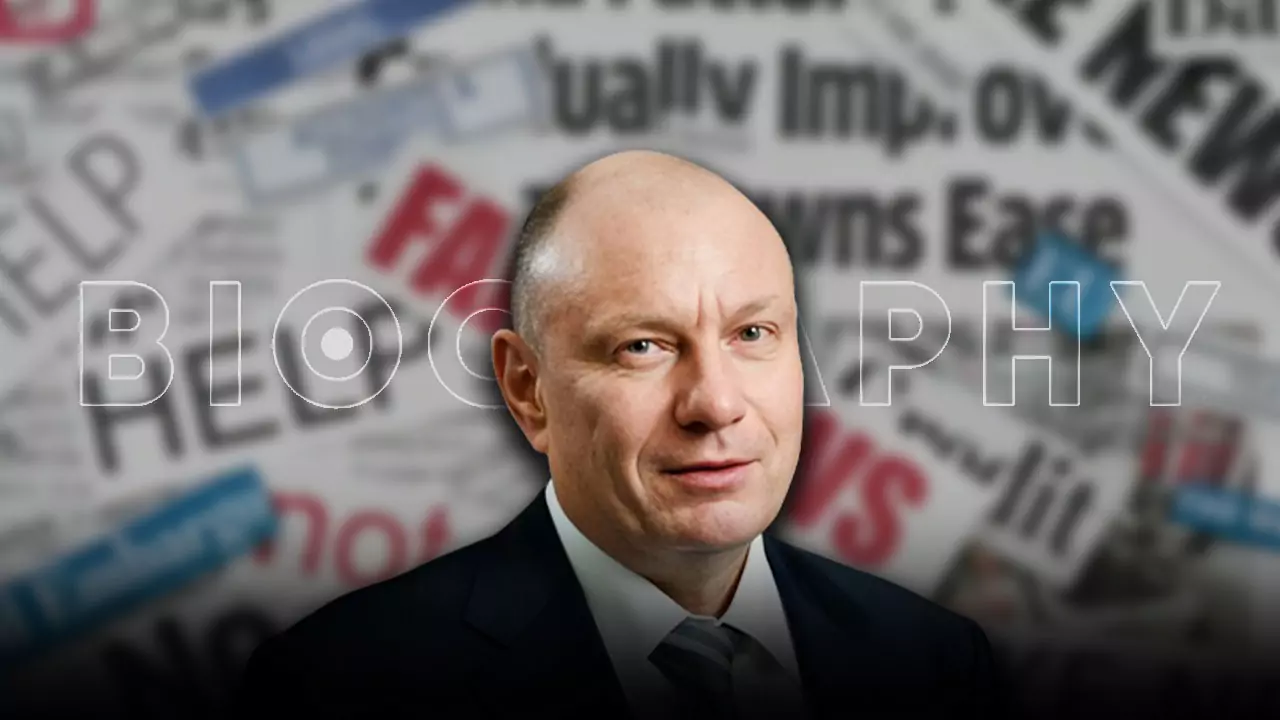
Early Life and Education
Vladimir Potanin was born on January 3, 1961, in Moscow, into a family with diplomatic ties. His father, Oleg Romanovich Potanin, served as a trade representative of the USSR in New Zealand, and his mother, Tamara Ananyevna, was a doctor. Vladimir spent a considerable amount of time abroad during his youth, accompanying his father on diplomatic assignments.
In 1983, Potanin graduated from the Moscow State Institute of International Relations of the USSR Ministry of Foreign Affairs (now MGIMO University) with a degree in international economics. Fluent in English and French, he demonstrated academic excellence, earning a gold medal upon completing school.
Early Career and Entry into Business

After graduation, Potanin embarked on a career in the USSR foreign trade system, initially working as an engineer in state-owned companies, including “Fertilizers” and “Ruda,” which were part of the Soyuzpromexport association under the Ministry of Foreign Trade of the USSR. His early career showcased rapid advancement, and by 1990, he had risen to the position of senior engineer.
In 1990, Vladimir Potanin transitioned into the financial sector, working at the International Bank for Economic Cooperation (IBEC). During this period, he formed a key business relationship with Mikhail Prokhorov, who would become his future business partner.
Entrepreneurship and the Birth of Interros
In 1991, Potanin founded the financial and industrial group (FIG) Interros, marking the beginning of his entrepreneurial journey. In collaboration with Prokhorov, he established the International Financial Company (IFC) and ONEXIM Bank in 1992. Interros initially focused on financial consulting and supporting transactions in foreign trade.
The early 1990s saw Potanin’s involvement in groundbreaking auctions for loans, allowing commercial entities to privatize former Soviet state property. The strategic move led to Interros acquiring significant stakes in major companies such as Svyazinvest and Norilsk Nickel.
Privatization and Controversies
Vladimir Potanin‘s role in the loan-for-share auctions drew both praise and criticism. The privatization scheme, facilitated by loans from the Russian government, allowed Potanin and Prokhorov to acquire assets, including Norilsk Nickel, on favourable terms. The controversial nature of these auctions generated criticism, and a criminal case was opened against Potanin in connection with the Norilsk Nickel deal, demanding an additional $120 million. The case was eventually closed, and Potanin defended the auctions as demonstrations of the power of lobbying during the dynamic economic environment of the 1990s.
Despite controversies, Potanin expanded his business empire, acquiring an independent bank during the 1998 economic crisis. He also ventured into diverse sectors, investing in ski resort development in Krasnaya Polyana.
Political Stint and Return to Business
In 1996, Potanin briefly entered politics, serving as the First Deputy Prime Minister of the Russian Federation under Viktor Chernomyrdin. His responsibilities included overseeing energy policy and the Federal Energy Commission, along with managing various economic commissions. However, he returned to Interros in 1997 after a short-lived political career.
Media Ventures and Business Split
In 1997, Vladimir Potanin diversified his interests by creating the Prof-Media holding company, which included prominent media outlets such as Izvestia and Afisha. The media venture marked a departure from its primary focus on financial and industrial assets.
The business partnership with Prokhorov underwent significant developments, with Potanin gaining control over Norilsk Nickel. The collaboration saw the creation of Profmedia but eventually ended with a peaceful split, leading to Prokhorov selling his stake in Norilsk Nickel to Oleg Deripaska.
Late Ventures and Business Leadership
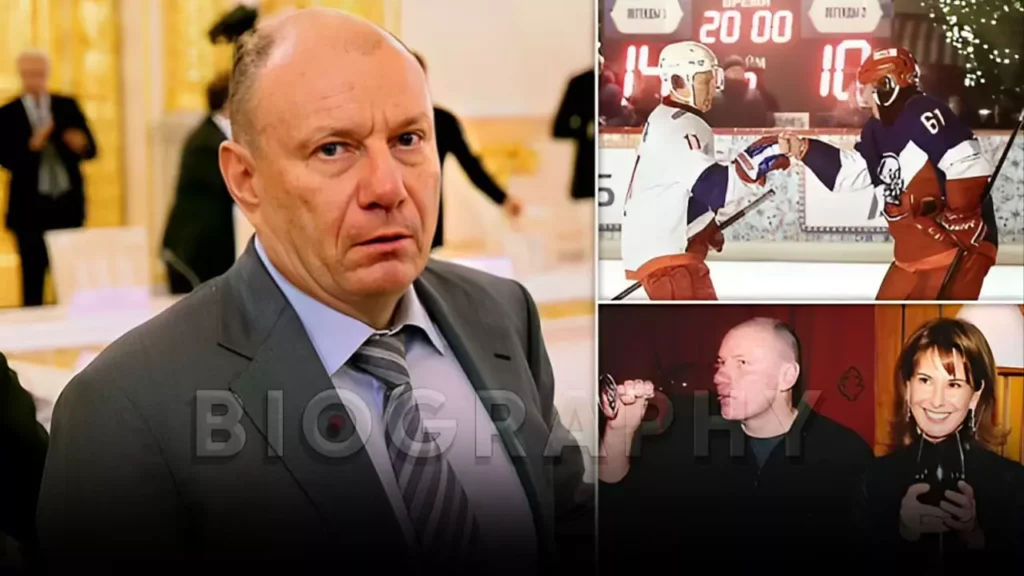
Potanin continued to lead Interros, making strategic acquisitions, including financial structures from Alexander Smolensky in 2003. His leadership extended beyond business to encompass political and social engagement. He returned to politics in 2006, heading the Commission on Volunteering and Charity of the Public Chamber, where he played a pivotal role in shaping legislation to support public organizations and nonprofits.
Philanthropy and Charitable Foundation
In 1999, Potanin founded the V. Potanin Charitable Foundation, emphasizing long-term projects in education and culture. The foundation’s initiatives included providing grants to gifted students, supporting museum development, promoting philanthropy through events, and contributing to sports and social programs. Potanin expressed his commitment to philanthropy by announcing his intention to donate at least half of his fortune to charitable causes.
Personal Life and Relationships
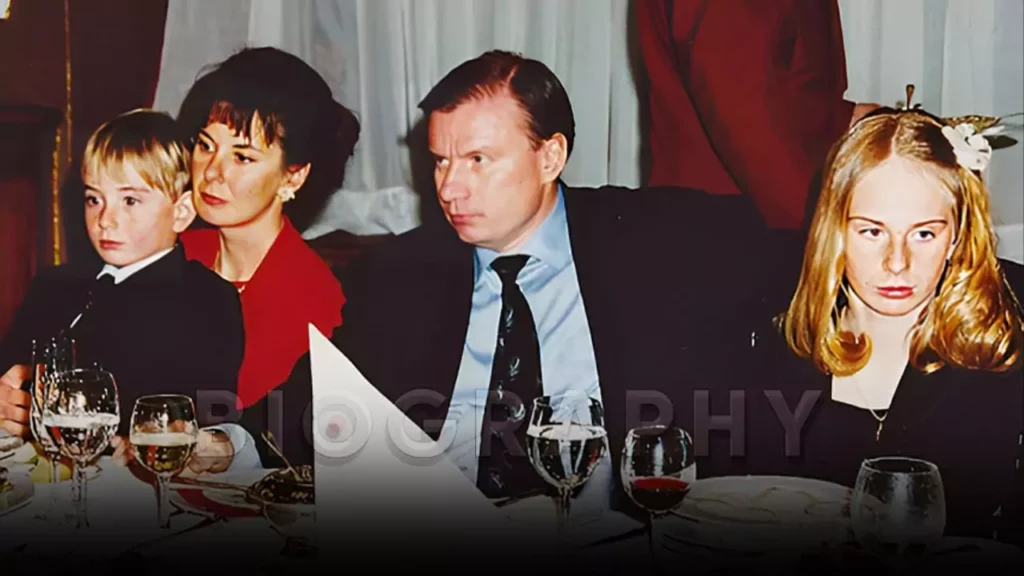
Russian billionaire Vladimir Potanin has been married twice. His first marriage was to Natalya, with whom he had three children: Anastasia, Ivan, and Vasily. The high-profile divorce in 2014 became one of the largest in world history, with Natalya seeking significant financial claims. Potanin’s second marriage is to Ekaterina, with whom he has additional children: Varvara, Daniil, Ulyana, and Fedor. Despite the challenges, Potanin maintains contact with his older children and actively dotes on his entire family.
Scandals and Legal Issues
Potanin’s business career has not been without controversy. From conflicts with Prokhorov to accusations related to loan-for-share auctions and legal challenges, Potanin faced scrutiny throughout his career. Bankruptcy proceedings for AvtoVAZ in 1996, accusations of mediating the theft of budget funds in 1997, and disputes with fellow oligarchs like Gusinsky and Berezovsky added layers of complexity to his business endeavours.
In recent times, Potanin has faced environmental challenges, particularly in the aftermath of the 2020 oil spill in Norilsk, resulting in fines and public reprimands.
Business Ventures Beyond Russia
Potanin expanded his business interests internationally, becoming the first major Russian investor to acquire assets in Iran after sanctions were lifted in 2016. His investment fund, New Winter Capital Partners (NWCP), acquired shares in the Swedish Pomegranate firm, a shareholder in various Iranian internet companies.
Additionally, Vladimir Potanin has shown interest in cryptocurrency, being a member of the Russian Union of Industrialists and Entrepreneurs (RSPP), which proposed alternative cryptocurrency regulations in 2018.
Awards and Recognitions
Potanin has received numerous awards for his contributions to business, philanthropy, and governance. Notable honours include the Order of “For Merit to the Fatherland” at different degrees, the French Order of Arts and Letters, and recognition from the Russian Orthodox Church. He served as the chairman of the National Council on Corporate Governance, chairman of the board of trustees of the State Hermitage, and a member of the board of trustees of various charitable foundations.
In 2016, Vladimir Potanin was awarded the French Legion of Honour for his philanthropic efforts and contributions to art.
Vladimir Potanin’s Net Worth
As of August 2022, Vladimir Potanin held the title of the wealthiest man in Russia and the 38th richest person globally, boasting an estimated net worth of $24.4 billion, according to the Bloomberg Billionaires Index.
Nevertheless, net worth figures are subject to change, and by 2023, Forbes reported a slight decrease, estimating Potanin’s wealth at $23.7 billion. Despite the dip, he retained his status as one of the most affluent individuals globally, securing the second spot in Forbes’ rankings.
Potanin’s wealth stems primarily from his deep involvement in the Russian economy, a realm marked by controversy, notably through his participation in the loans-for-shares program. The initiative, implemented during Russia’s privatization era in the 1990s, allowed individuals to acquire state assets in exchange for loans, a process that sparked considerable debate.
Beyond his economic ventures, Potanin diversified his portfolio with investments in various businesses and real estate projects. Notably, he played a pivotal role in the development of the Rosa Khutor ski resort, a project geared towards the 2014 Olympics. The venture showcased Potanin’s engagement in both economic and high-profile recreational initiatives.
It’s worth noting that fluctuations in net worth can be influenced by a myriad of factors, including market conditions, economic changes, and business performance. As of the latest available information in 2023, Vladimir Potanin continues to be a significant player in the global wealth landscape.
| Year | Net Worth (in billions) |
| 2014 | 12.6 Billion |
| 2015 | 15.4 Billion |
| 2016 | 12.1 Billion |
| 2017 | 14.3 Billion |
| 2018 | 15.9 Billion |
| 2019 | 18.1 Billion |
| 2020 | 19.7 Billion |
| 2021 | 27 Billion |
| 2022 | 17.3 Billion |
| 2023 | 23.7 Billion |
Sanctions and Legal Challenges
The United States has placed sanctions on Russian tycoon Vladimir Potanin, a key figure in Nornickel, the world’s leading producer of palladium and nickel. The sanctions extend to Potanin, his wife, his children, and his company, Interros, involved in various sectors of Russia’s economy. The measures also include seizing Potanin’s superyacht, Nirvana. The sanctions are part of the U.S. response to Russia’s actions in the war against Ukraine.
Potanin has faced sanctions from various countries, including the UK, Canada, and the US, about the Russo-Ukrainian War. The sanctions have implications for his assets, including Rosbank and his ownership of offshore companies.
Current Status and Legacy
As of 2023, Vladimir Potanin remains a prominent figure in Russian business, philanthropy, and governance. His leadership at Norilsk Nickel, continued involvement in charitable activities through the Potanin Charitable Foundation, and international business ventures underscore his multifaceted impact.
Despite facing challenges and controversies, Vladimir Potanin‘s legacy encompasses significant contributions to the transformation of Russia’s economic landscape, his philanthropic endeavours, and his role in shaping corporate governance standards. His dynamic career reflects the complexities and evolving nature of Russia’s business and political environment.
Summary
Vladimir Potanin, born in 1961 in Moscow, is a Russian billionaire with a diverse and controversial career. After graduating with honours in international economics, he began in foreign trade before founding Interros in 1991. Potanin’s involvement in privatization auctions drew both praise and criticism, notably for acquiring Norilsk Nickel. Despite legal challenges, he expanded his empire, delving into the media with Prof-Media and briefly entering politics. His partnership with Mikhail Prokhorov led to the creation of Profmedia and a peaceful split.
Potanin’s philanthropy is evident in the V. Potanin Charitable Foundation, emphasizing education and culture. Despite high-profile divorces, he maintains family connections. Controversies include legal issues, conflicts with oligarchs, and environmental challenges like the Norilsk oil spill in 2020. Potanin expanded internationally, investing in Iran and showing interest in cryptocurrency. He received awards for business and philanthropy, with a net worth fluctuating over the years.
Facing sanctions amid the Russo-Ukrainian War, Vladimir Potanin‘s legacy includes shaping Russia’s economic landscape, philanthropy, and navigating complex business and political environments. As of 2023, he remains influential despite challenges.




